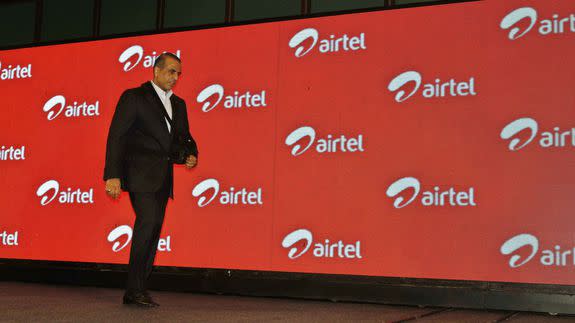India's largest telecom network Airtel announces plans for free voice calls

Paying for voice calls will soon be a thing of the past for Indians.
Airtel, India’s largest telecom carrier, today unveiled new tariff plans starting at Rs 145 ($2) that will enable over 260 million subscribers on its network to make free voice calls anywhere in India.
SEE ALSO: Inside Reliance Jio's audacious plan to disrupt India's internet landscape
The move comes three months after India’s largest industrial house, Reliance Industries Limited, took the country by surprise with unlimited free voice calling on its new Reliance Jio telecom network. At the time, Reliance Jio was the only telco in India to offer free voice calling.
Airtel says subscribers who opt for Rs 145 ($2) tariff plan will be able to place unlimited calls across India, provided the recipient is also on Airtel network. Additionally, Airtel is also offering 300MB data with the plan for subscribers who have a 4G-supported smartphone, and 50MB of data for other phones.
The carrier has also unveiled a tariff plan that is priced at Rs 345 ($5), and lets subscribers make unlimited voice calls even to those recipients who are on a rival telecom’s network. The plan also comes with 1GB of free data to subscribers with a 4G-supported smartphone. There’s also 50MB of data for subscribers with any other kind of phone.
“This is another initiative from us to bring innovative bundle offers to our customers in line with our endeavour to provide the great value backed by a superior network experience,” Ajai Puri, Director – Market Operations (India & South Asia), Bharti Airtel said in a press statement.
It’s a bold move from Airtel, which sees 70 percent of its revenue come from voice calls. But the arrival of Reliance Jio, which reported over 50 million subscribers in less than 90 days, has left incumbent carriers with little choice but to make major changes.

 Yahoo News
Yahoo News